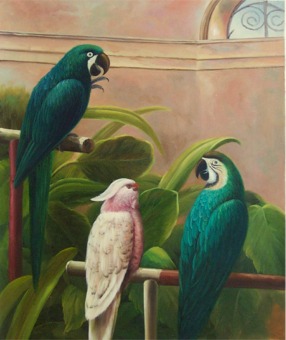Have you ever lost a day? Looked behind you and realized, all of a sudden, that it was Wednesday instead of Tuesday. Or Sunday instead of Saturday. What the hell happened to Saturday?

*ahem*
In summary, in a completely reasonable move, I skipped day 9 of the writing project.
In regular life, time moves forward. We don't get to go back and scoop up those 'lost' hours or days. Whatever they were, they were and are no longer.
In writing, we get to do whatever the heck we want. Accordingly,
welcome to day 9 of the writing project,
located after day 11 chronologically,
To kick off our topic -- let's talk about Jazz.

The nice thing about writing consistently is that it allows for easily-dissectable AB testing. For instance, I'm getting kind of into the "inspired by" format I've been going with the last few posts. I'll be continuing that until I decide to try something else.
Today's topic, jazz, comes from a quote I read on the Weekly Standard while researching John Coltrane (featured above). It goes thusly:
"The English saxophonist Ronnie Scott used to tell a joke about a man who goes to a pet shop in search of a singing parrot.
The proprietor turns out to have three parrots in stock.
The first and cheapest parrot is a richly plumed specimen that can sing all of Louis Armstrong’s solos.
The second is in equally splendid condition, but costs more, because he can sing all of Charlie Parker’s solos.
The third is blind, can barely stand on his perch, and has lost most of his feathers. But he costs more than the other two birds combined.
'What does this one sing?' the customer asks.
'I don’t know,' says the proprietor, 'but the other two call him ‘Maestro.’'

The article goes on to say that "most of the people who play jazz view Coltrane’s late period like the proprietor regards his parrot, with baffled respect...We talk about the 'Coltrane changes' more than we play them, and we tend to play them in their milder iteration by Richard Rodgers." By "Coltrane changes," the author is referring to the depth of Coltrane's artistic elasticity -- the various forms he introduced us to in jazz, that are impressively reached as a matter of concept and have heavily impacted the furtherance of musical study...but are not so fun to listen to.
Jazz is particularly well known for pushing the boundaries of expression. Yet, the author makes a final, baffling statement at the end of the article, saying
"it is a sad fact of musical history that after Coltrane, there was nothing left to say on the saxophone."
Ok. Problems with this. It seems to fly in the face of jazz to say that an entire instrument is, after the master's finale, only as useful as a paper weight.

Beyond that, there is the sentiment that the master, realizing he has nothing to contribute, acts best by keeping silent. If there's nothing left to say, why say it? By failing to contribute useless or potentially hazardous information, he succeeds.
Who wants to bet the parrot in the joke was thinking the same thing?

credit to https://www.weeklystandard.com/dominic-green/john-coltrane-and-the-end-of-jazz